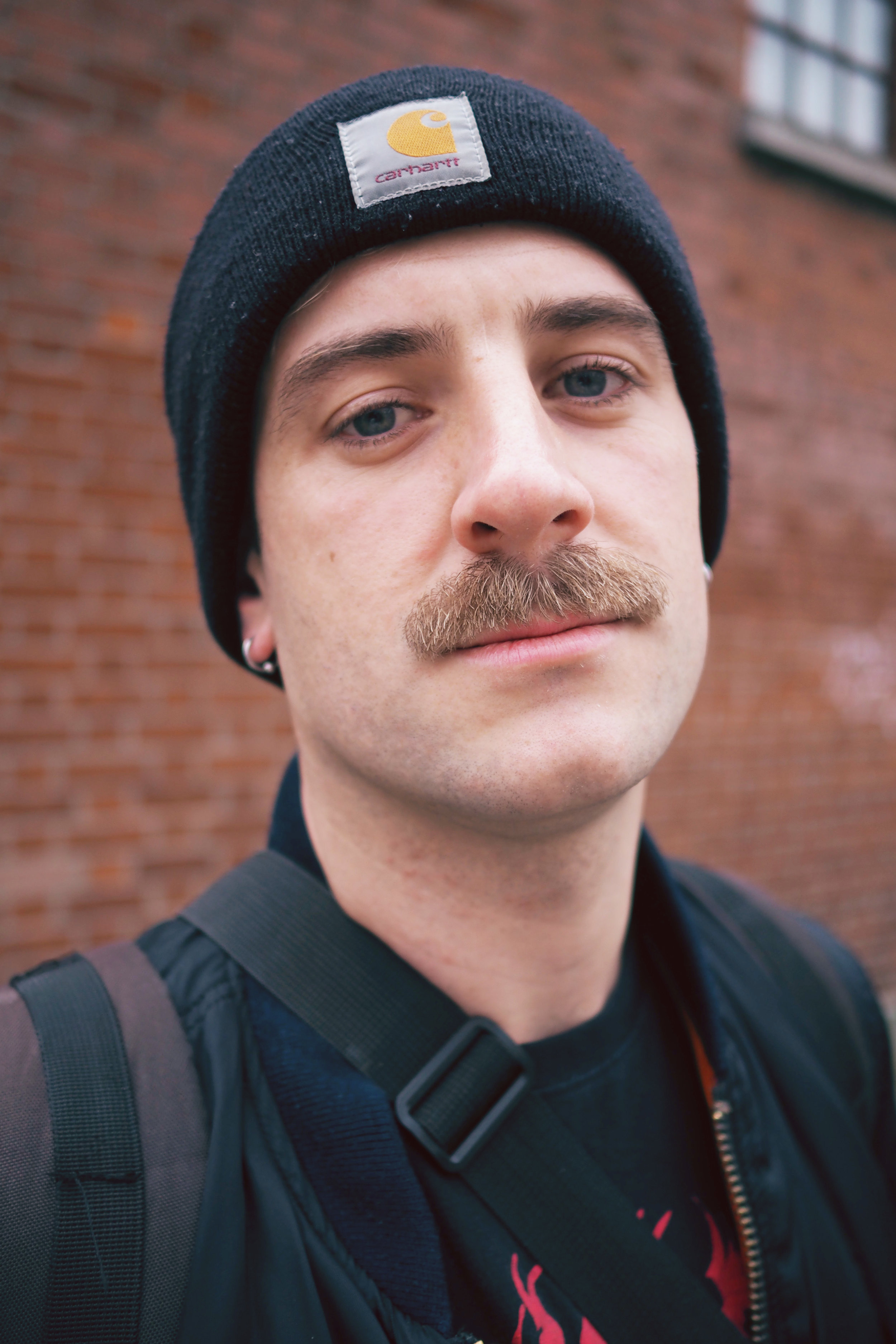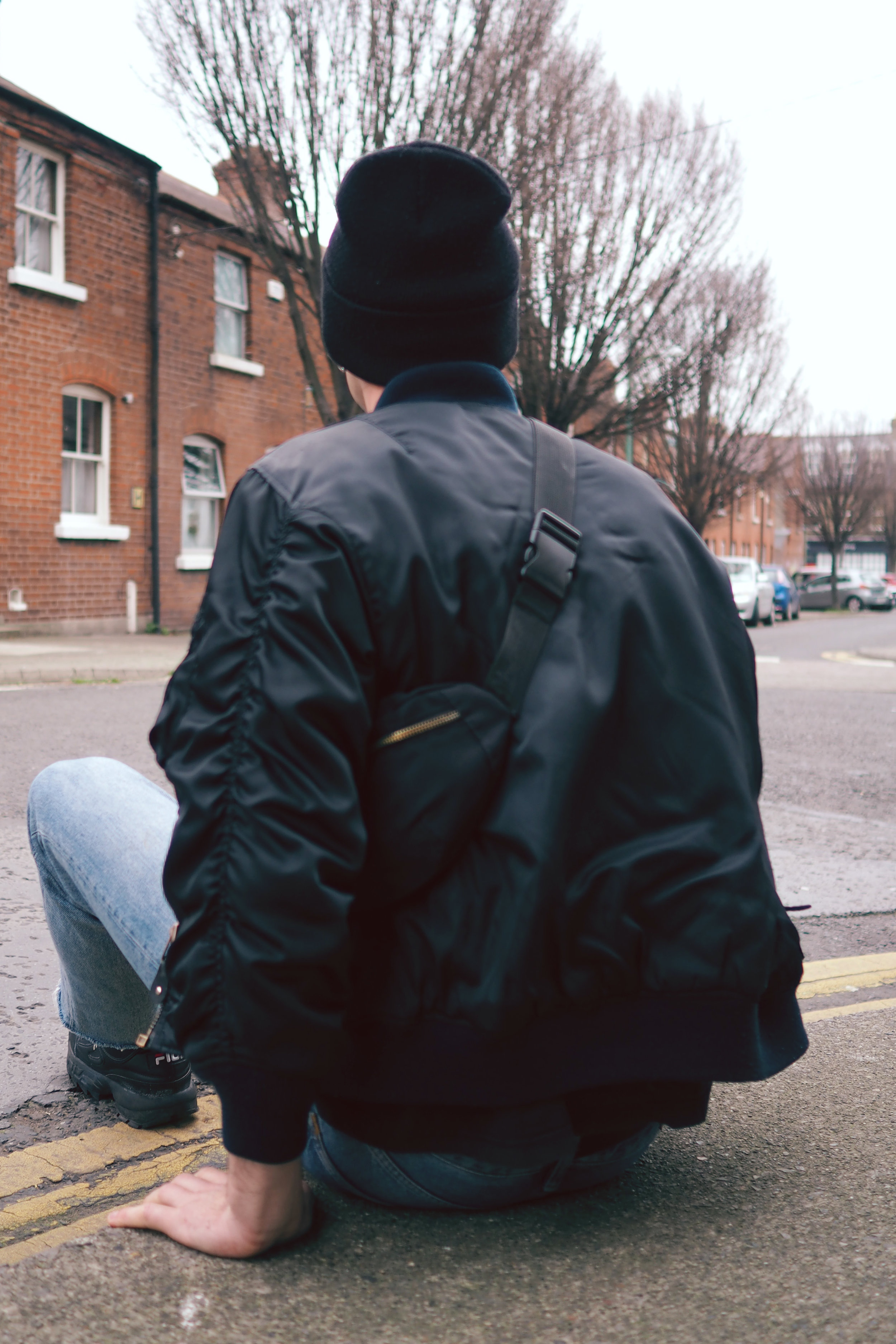Stevie Faherty
“A safe space for me is one where all people under the rainbow are accepted and no judgement or discrimination happens within that space. Of course, that is in an ideal world, and even within our gay bars people may not feel safe. Grace aims to create a safe space. One where no homophobia, racism, misogyny, transphobia or bigotry of any kind will be tolerated. Where the weird, wild and wonderful queers can come and enjoy the space in all their shapes, sizes and colours.” Stevie Faherty is one half of Grace, a new underground queer techno party, arriving to Dublin next month. Here, ahead of its first night, he sets out his stall.
As dancefloors disappear across Dublin, with LGBT+ nightlife seeming temporarily stuck, Grace offers the city’s queer contingent a new proposition. Underpinned by a robust statement of intent, with openness and inclusion as prerequisite and explicit conditions, it strives to work solely with artists who are queer, women, or who bear other marginalised identities. Stevie elaborates: “Grace was born out of a need and want for a queer techno party in Dublin. You look around and there’s not a whole lot of nightlife or opportunities for clubbing that put forward such a positive statement. It just feels like Dublin is missing that. We’ve had a really good reaction so far.” Billed as “a night of queer rave utopian bliss”, Grace’s opening party will feature ReeVa and Juan Isele, with the headline act yet to be announced.
On the inclusivity of techno as a genre, Stevie reckons its getting better: “I think a lot of techno parties and clubs can be very hetero environments. More and more, there’s a narrative of inclusion which is good. People are definitely making their voices heard within that space. Maybe not previously, but increasingly so. I do feel queer people, women, and marginalised music lovers and artists are finding their voices within the broader electronic scene, which may have forgotten these people and how they helped to shape it into what it is today.” Near universally loved queer artists like Honey Dijon and the Black Madonna epitomise this.
A summer spent in Lisbon serves as Stevie’s frame of reference for Grace. Specifically, mina and Kit Ket; two queer clubbing collectives with inclusion and sex positivity to their fore: “Lisbon helped shape my ideas around the atmosphere we wanted to create. Although, I didn’t actually make it to an official mina party. When I was [in Lisbon], they had planned a night with Resident Advisor but, unfortunately, the venue pulled out. People reckon it was because they had a dark room, and because the city council were paying for part of the rent. If they heard about that, they’d be in the shit. It was all a bit weird. Instead, Phase Fatale played in a little gallery called ZBD. While the mina crew wouldn’t say it was a ‘proper’ mina party, for me, the four hour set was really quite special. There were a lot of strobes and smoke machines, it was a really nice space to be free, to lose yourself in the music.”
While the safety of all patrons should be a given for any venue, too often that seems like an idealisation; lip service. Most queer people have experienced a degree of harassment or discomfort when partying – even in supposedly inclusive spaces. So, in the case of Grace, what will safety look like? “We want to be as far away as possible from the ‘masc4masc’ craic. We just want to be totally inclusive to trans and non-binary people, and everyone within the queer spectrum. We will be implementing a no phones policy and will place stickers on cameras. Not only does this mean less distraction and more connection to the people and music, it creates a sense of safety among our guests that they may not get elsewhere. We will keep our ears to the ground and ensure that no one is made feel uncomfortable by other attendees.”
It’s evident in speaking even briefly with Stevie, the extent to which he believes in the transformative power, and often transcendental experience, that clubbing provides. Cognisant of the necessity of dancefloors as sites for the diffusion of ideas, where experiences and energies can collide and coalesce, he is frustrated by the current state of affairs at home. “Clubbing is so important for cities and nightlife, and culture as a whole. Even more so for queer people. It’s essential to connect, and to maintain communities. Maybe it’s because we’re disconnected from Europe, outside the loop, but nightlife [here] is very restricted. Most European capitals are going all night, until seven or eight in the morning. We need a night mayor, we need new licensing laws. It would generate so much revenue for the country, I don’t know why politicians won’t get behind it.” Arguably, the emergence of new nights like Grace, and their success, play an important role in furthering the argument for greater after hours opportunities, by demonstrating the importance of, and appetite for same. See you there.
Grace’s first party, Imbolc takes place on Saturday, 2nd February at 39 / 40 Arran Quay, Dublin 2. For more, click here.






